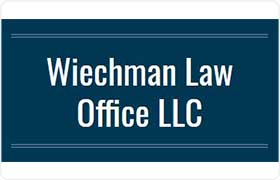Wamego Bankruptcy Lawyer, Kansas
Sponsored Law Firm
-
 x
x

Click For More Info:
-
Wiechman Law Office LLC
1101 Sw 10th Ave. Topeka, KS 66604» view mapBankruptcy & Debt Law A Better Way Forward
Our mission is to guide our clients to a better way of life. We are here to listen. We are here to help. We’ll find a solution that fits you and your situation.
800-969-4051
Includes: Bankruptcy Litigation, Commercial Bankruptcy, Consumer Bankruptcy, Dissolution
Gary E. Hinck
✓ VERIFIEDBankruptcy, Reorganization, Workout, Credit & Debt, Consumer Bankruptcy
We are a debt relief agency, we help people file for Bankruptcy under the Bankruptcy code.
Gary E. Hinck is an experienced Bankruptcy Attorney who has helped thousands of clients through the Bankruptcy process. Gary and his staff understand ... (more)
Keith Rodrick Henry
Military, Landlord-Tenant, Mass Torts, Estate, Bankruptcy
Status: In Good Standing
Walter P. Robertson
Employment, Divorce & Family Law, Bankruptcy, Accident & Injury
Status: In Good Standing Licensed: 55 Years
Tad Ruliffson
Elder Law, Estate Planning, Commercial Bankruptcy, Commercial Bankruptcy
Status: In Good Standing Licensed: 11 Years
Jennifer Anne Sanchez
Contract, Entertainment, Commercial Bankruptcy, Legal Malpractice
Status: Inactive Licensed: 12 Years
Alan M. Stremel
Divorce, Business, Bankruptcy, Personal Injury, Estate Planning
Status: In Good Standing Licensed: 33 Years
 Kerry Gasper Topeka, KS
Kerry Gasper Topeka, KS

